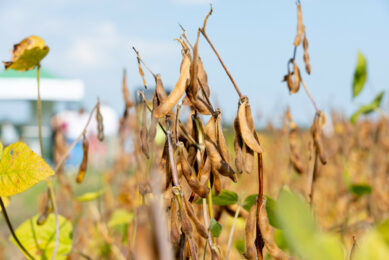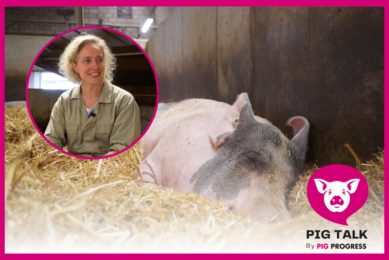Swine flu flunks feed industry
Prices of soybeans, corn and wheat are down on the Chicago Board of Trade. All because of the emergence of a variant of an influenza virus H1N1 which is wrongful linked to pigs in Mexico. The snowball continued to grow and countries banned pork imports from ‘infected’ areas. Less pork means fewer pigs, means less feed needed and as a result prices of raw materials go down.
Mass media create mass hysteria, especially when diseases like bird flu, BSE or the current type of flu first found in Mexico emerge. A lot of misunderstanding is created and pictures of people wearing surgical masks or governments using heat sensitive cameras at airports (Japan) to scan incoming travellers for increased body temperatures further give momentum to the scare.
Mexico City, an ant-hill with 22 million inhabitants, turns into a ghost town, because everybody is afraid to come into contact with somebody that might be carrying the virus. And that might be right. So far there is no evidence that the virus is originating from pigs. It is a human health concern and not an animal health issue. Therefore the disease should be called Mexican influenza.
Eat your pork
For the pig (and feed) industry communication of the naming of the flu has been flunked. Braised pork or carnitas is prepared at taco stands on busy street corners in Mexico City, but nobody is buying. In two days, pig commodities have lost more than 7%. In spite of its wrongful name, this type of flu does not transmit by eating pork, but several countries, including China, have already imposed import bans on pigs from the US and Mexico. Russia, a large buyer of US pork, has also imposed an import ban. Companies such as Bunge, Archer Daniels Midland and Cargill have seen sales almost slump in recent days as buyers stopped purchasing soy meal used for animal feed.
The pig and feed industry is being wrongly hurt by the name of the flu. You simply do not get influenza by eating pork, so do not refrain from your bacon at breakfast or your barbecued pork sandwich.
What’s in the numbers?
The number of human cases of Mexican flu in the US to date is less than a hundred according to data from the Centers for Disease Control and Prevention (CDC). CDC officials have said they expect the number of new cases to keep rising. The types of illnesses seen in the US have been relatively mild compared to more severe illness seen in Mexico, but experts say that could change. CNN brings the first death (a 2-year old child in Texas) caused by the Mexican flu as “Breaking News”.
“I fully expect we will see deaths in this country,” acting CDC director Dr Richard Besser told reporters earlier in a conference call. That is a no-brainer if you realise that annually 36,000 people die of seasonal flu in the US.
Over-reacting bodies
The type of Mexican flu is being caused by an influenza type A strain that is believed to be a combination of a pig, bird and human virus that hasn’t been previously identified in people, the CDC has said. Health officials are ‘concerned’ it will spark the next influenza pandemic caused by a new type of virus to which humans have little or no immunity … as they also previously have said when bird flu related deaths occurred in Asia not so long ago.
I cannot ignore the feeling that outbreaks like these are also taken as an excuse to fill research funds and create extra jobs by exaggerating reality, which turn into a spiral effect and are sparked by the public media that aim for exposure and not tell the whole story.
Just think of the BSE chaos in the eighties when tens of thousands of deaths were predicted, overweight governmental bodies were created and billions of dollars were wasted and the (feed) industry was placed in a strait-jacket of regulations. (And not to forget – a valuable source of protein (MBM) still cannot be used and needs to be destroyed.)
Since this flu in Mexico is not directly related to pigs it would have been better to name it Mexican influenza from the beginning (The World Organisation for Animal Health, OIE now wants to call it North American flu). This way all the commotion and negative effects on the pig and feed industry could have been avoided.











